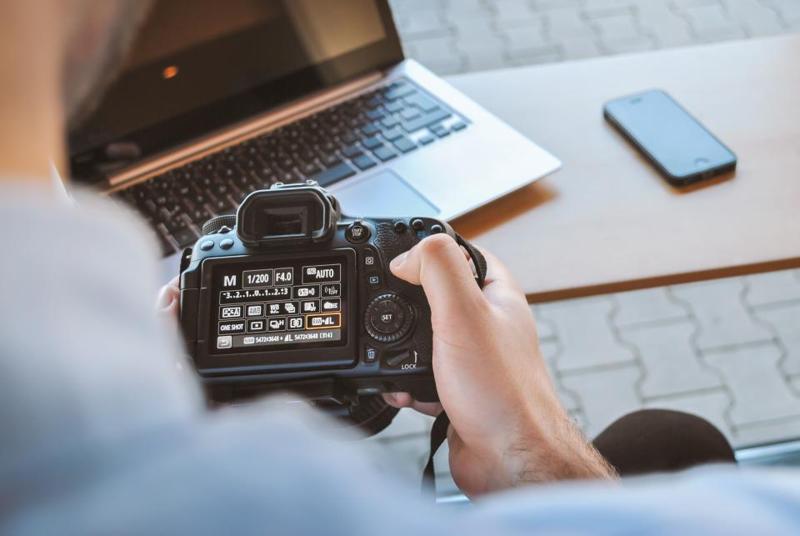
Sam Seaborn, on West Wing, had nailed it a long time ago, when he said, “The next two decades are going to be about privacy. I am talking about the internet. I am talking cell phones. I am talking about health records, and who is gay, and who is not?" He continued on, to ask how privacy could, possibly, not be, a fundamental right.
I watched this episode a decade ago, and that was the first time I started thinking about privacy. Privacy hasn’t been a fundamental right in many places for a long time. But that has to change now. As surveillance and communication technology makes it easier to invade privacy, our laws must keep up to protect the dignity of private life. Kudos to the Supreme Court for upholding privacy as a fundamental right.
As we interact with people professionally, socially and as members of various groups, we only reveal certain aspects of ourselves, that are compatible with, the subjects under discussion, and the principles, ideals, rules and norms of the group we are interacting with.
We, almost never, let another individual know everything about us. Even, from our closest friends, we have certain aspects of our personality, that, if we do not outright hide, then, at least, we down play. It is only in private, that we can truly and completely be ourselves. So our privacy is linked to our identity. That is why, privacy is not some esoteric luxury, but should be a basic right.
West Wing wasn’t the only show, that foresaw the importance of privacy. Boston Legal did an episode, showing that privacy is not just about human dignity, but essential to the physical safety of people. In the Boston Legal episode, a Health Maintenance Organization, a domestic abuse victim had approached, stored her address and medical records on their data base. Her abusive ex-husband, was easily able to get through their meager security and access her private information, after which he found her and murdered her.
In another Boston Legal episode, a woman was fired for smoking in the privacy of her own home, because it was against company policy. This company chose to regulate, what legal activities, she could or could not undertake in the privacy of her home, if she wanted to retain her job. To determine whether she was complying or not, they demanded a urine sample.
In the age of the internet, with cheap surveillance equipment, and cheap and easy storage of large volumes of data, it is easy for a government with all the resources at its disposal, or anybody, actually, with some time, money and ingenuity, to track your every move, without your knowledge. How can any of us live in comfort, unless we know that there exist some places like our homes, where our privacy is inviolate. That is why, privacy must be a fundamental right guaranteed by the courts.
Every shop we visit, every website we log into, demands our mobile phone number, address, date of birth, anniversary dates (in case of restaurants) and other private information, that they really have no business collecting, but they do it anyway, so they can use our data to spam us with advertisements or worse, sell our data to advertising agencies. How many of us, use this kind of information, at least indirectly, to construct our passwords, that seem secure. Privacy has not been given the importance it deserves, and so without really thinking about it, many of us have parted with all this information to get a loyalty card or a 10% discount.
Hospitals and insurance companies collect sensitive medical data concerning rape, abortions, domestic abuse and illnesses, that we may not be comfortable talking about and making public. Psychologists work, by having us confess our deepest darkest secrets. Without a guarantee of privacy, some of us would be uncomfortable seeking the medical help we need, when we need it most.
Socially too, privacy is a strange concept for many of us, who do not hesitate to meddle in the affairs of our neighbors, pass judgment on the personal life choices of strangers and acquaintances, and give unsolicited advise to young mothers and girls who seem vulnerable. Yet, when it might actually be important to meddle, like in domestic abuse cases, we do not interfere or help, calling it a private matter. We, as a society do not respect privacy, but use it as an excuse to allow social injustice to thrive.
But now, as is long over due, the courts have finally made the importance of privacy to human dignity clear, and made it our basic human right. So now, it is time, that we as citizens, start respecting the privacy of those around us.
When we meet new people, let us not bombard them with questions about their caste, ethnicity, marital status, religion etc, and let them volunteer whatever information they would like to share, and allow them their privacy. Let us respect the concept of personal space, in conversation, body language and most of all, in public places.
Let us be sensitive, in the questions we ask, and the information we demand, so we create a culture of privacy, that will require stricter laws to be made about selling and sharing of personal data collected by businesses.
The internet and electronics are wonderful tools for creating a well connected global society, but strict privacy laws must go hand in hand, to ensure the comfort and safety of all.